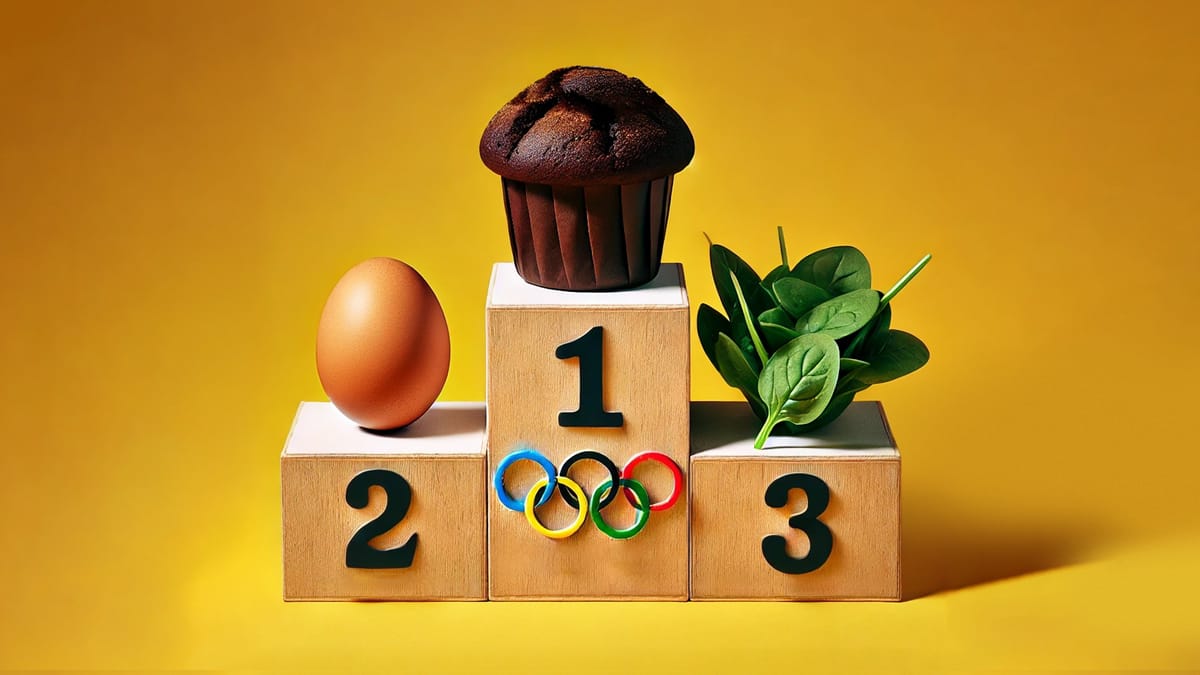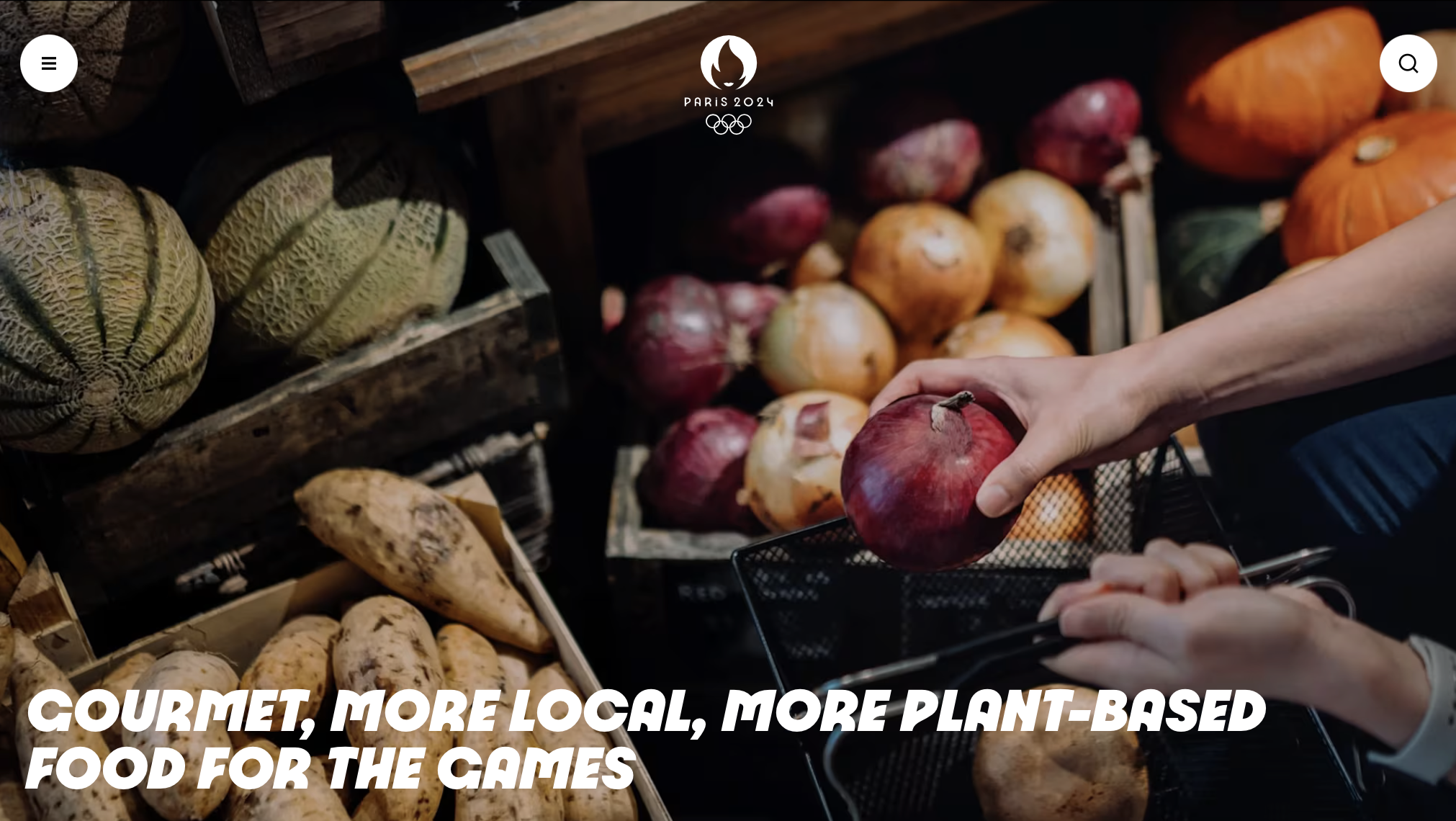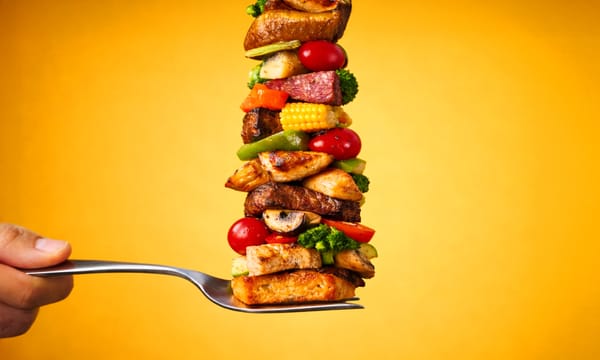UNSTUCK 013: How Team Alt Protein could have won at the Olympics
A golden opportunity was missed because of a producer-centric mindset.

The medal counts for Paris 2024 are in. Unfortunately, if alt-protein was a team it would have walked away disappointed after reports of athlete revolts and countries having to parachute in their own chefs. While it’s certainly no easy feat to serve 13 million meals that please taste buds coming from 173 different countries, a pinch of customer-centricity could have gone a long way to a different outcome.
A vision turns into a headache

It seems to us the problem started with the producer-centric approach spelled out in the “Food Vision” for the games. They started by consulting the “French food ecosystem”, not the people who would actually eat the food and have to perform based on it. The sustainability department then mandated targets to cut the carbon footprint of meals and snacks in half. And finally Michelin-starred chefs were put in charge of developing the menus. As an afterthought, 200 athletes were emailed a survey asking them, among other things, to describe French cuisine in three key words (spoiler alert: croissant, baguette, bread featured pretty high).
The outcome was that dishes like a twisted croissant with artichoke purée, goat cheese, and truffle were served up at the Olympic village, alongside a 30% plant-based menu. But the athletes, who were barely consulted, didn’t get on board. They just wanted to have more eggs.
When it comes to alt-protein, the Olympics effectively put the Price-Taste-Convenience Hypothesis, which many in the industry are proponents of, to the ultimate test. Price was not an issue since the food was free. Taste was undoubtedly taken care of by the army of Michelin-starred chefs. And convenience doesn’t enter the picture when catering giant Sodexo is doing all the work. The test failed. In hindsight, if you imagine a Mongolian wrestler being given a truffled vegan concoction, it’s not difficult to see why.
Alt-protein does a body good

Many Olympians, like everyday consumers around the world, have been brought up believing animal proteins to be the greatest fuel for their bodies. Changing their diets at the pinnacle of their careers, at a moment when the stakes could not be higher, is a big risk.
However, as Lewis Hamilton, Venus Williams and Lionel Messi have discovered, the protein sufficiency and benefits of plant-based foods have been proven to be on par with animal proteins. It's just that once you get out the alt-protein echo chamber, most of the world isn’t aware of this. So how could have alt-protein been approached differently at the games? We have some thoughts.
Three ideas to go for gold
- Participation.
Thinking strategically about which countries would be more open to promoting plant-based options with their athletes and engaging early the Chairs, Coaches and Nutritionists would have gone a long way. Instead of a “top-down” target and approach, co-designing the target and the steps to achieve it would have given a better chance of getting it right alongside building early, highly influential, supporters. A survey on “sustainable catering” was conducted to help set targets, but the focus for this seems to have been on the sustainability side, rather than the end consumer. - Consultation.
Again, a survey of 210 athletes was sent out covering a breadth of countries and sports. 75% described themselves as omnivores as opposed to flexitarian/vegan/vegetarian and nutrition was highly valued alongside taste and speed. Not least the survey results should have provided some major warning signs that they were heading for a PR disaster. Earlier focus groups would have allowed them to deeply understand the athletes' beliefs around food and nutrition providing valuable direction on how to develop and position plant-based offerings against their needs, using the survey to validate they were on the right track. - Influencers.
Calling upon high profile athletes who performed at the top of the game whilst following a predominantly plant-based diet would have helped in both understanding mindsets and promotion ahead of and around the event. With all due respect to the Paris Olympics 2024 President, Tony Estanguet, saying it’s our responsibility and collective duty to try the vegan food because “in terms of taste, it’s very good” wasn’t going to cut it with athletes nor spectators. Calling upon some of the sports world featured in the 2018 documentary, The Game Changers, would have had a significantly greater impact.
You may say we're dreamers
Imagine if this week instead of talking about chocolate muffins (the recipe from the Olympic village bakery has gone viral on Tik Tok thanks to athlete posts), everyone was talking about a recipe that didn’t contain eggs, milk, sour cream, cream and milk chocolate, and hundreds of thousands of people across different countries were giving it a go.
A consumer-centric approach could have gotten us there.






